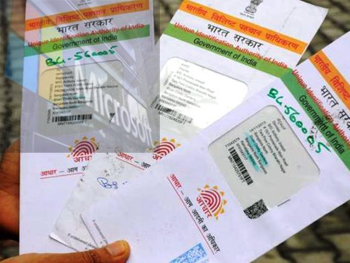Feb 22: The government's sustained efforts to implement the use-case scenarios for 12-digit Aadhaar got a major fillip from tech giant Microsoft when it launched new apps Linkedin Lite and Skype Lite.
 Microsoft Chief Executive Satya Nadella, in his keynote speech at the company's Future Decoded summit in Mumbai, unveiled the apps explaining how they can revolutionise the way candidate verification processes can happen at big companies and SMEs.
Microsoft Chief Executive Satya Nadella, in his keynote speech at the company's Future Decoded summit in Mumbai, unveiled the apps explaining how they can revolutionise the way candidate verification processes can happen at big companies and SMEs.
"Skype will now support Aadhaar. Skype Lite will come in to help people connect in poor network areas and it is going to come with Aadhaar capabilities," Nadella said.
The Skype Lite app can verify Aadhaar data real time with the help of OTPs -- similar to the ones generated for online verification. Employers can chat with 'Aadhaar Verified' users on both the regular Skype app and the new Skype Lite app while interacting for job interviews and similar scenarios.
Nadella stressed on the importance of job creation and skill development as a plank for economic upliftment of individuals and the country. Microsoft plans to leverage the 39-million-strong LinkedIn user base in India.
"LinkedIn India is creating products just for India and the first one is LinkedIn Lite, a tool that will help people connect from low connectivity zones in the country," Nadella said.
Project Sangam
Microsoft's new programme Project Sangam will help Indians to skill themselves for jobs available, Nadella said. The ecosystem will allow skilled individuals pour content into a pool which can be used by anyone for training purposes, thereby making individuals better-skilled candidates.
Enrollment for Project Sangam is done through the government's Aadhaar Praman Service.





Comments
Add new comment